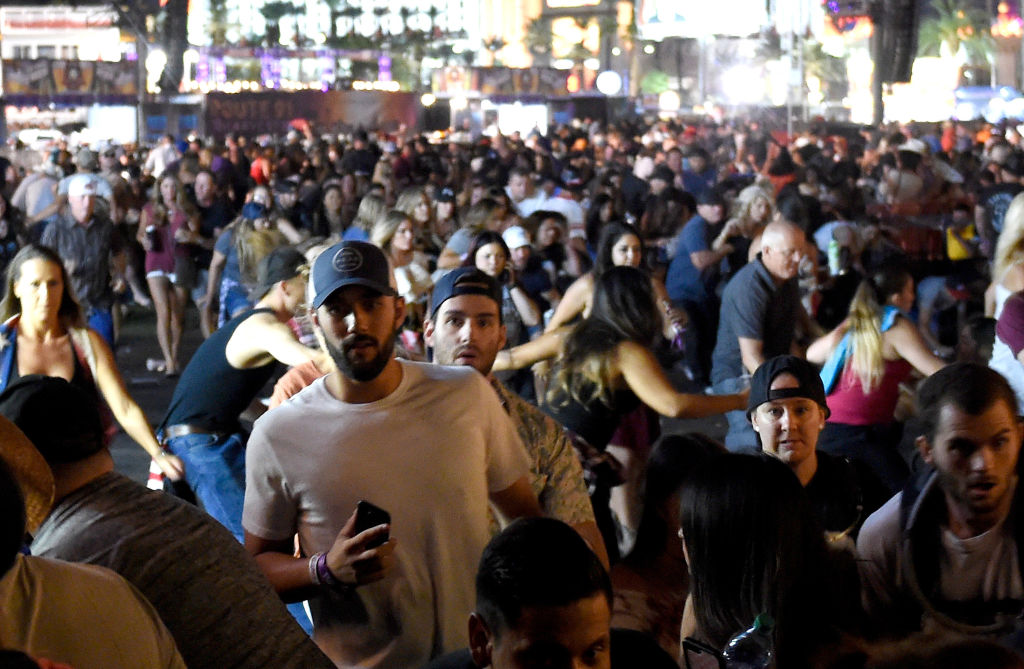Colorado's Democratic Senator Michael Bennet called the Las Vegas shooting domestic terrorism on Tuesday, as he called for universal background checks on gun sales.
We can't prevent all evil acts, but we can do our part to make them less likely—starting w/ action to keep wrong weapons out of wrong hands. pic.twitter.com/I5f3mC3Se8
— Michael F. Bennet (@SenBennetCO) October 3, 2017
Colorado is one of the states that has universal background checks, and the shooter in Las Vegas had passed background checks.
But “domestic terrorism,” and its definition, have become a point of debate, not unlike the definition of “sanctuary city.” Unlike the latter, terrorism is federally defined by the Patriot Act as a crime that seeks to affect a government or retaliate against it.
The Patriot Act defines "domestic terrorism" as activities within the United States that involve acts dangerous to human life that appear to be intended:
(i) to intimidate or coerce a civilian population;
(ii) to influence the policy of a government by intimidation or coercion; or
(iii) to affect the conduct of a government by mass destruction, assassination, or kidnapping.
In Nevada, “terrorism” is defined as any act that involves the use or attempted use of sabotage, coercion or violence which is intended to:
1. “Act of terrorism” means any act that involves the use or attempted use of sabotage, coercion or violence which is intended to:
(a) Cause great bodily harm or death to the general population; or
(b) Cause substantial destruction, contamination or impairment of:
(1) Any building or infrastructure, communications, transportation, utilities or services; or
(2) Any natural resource or the environment.
2. As used in this section, “coercion” does not include an act of civil disobedience.
By the legal, federal definition, no one knows yet if the Las Vegas shooting can be considered terrorism, even if it's beyond doubt that it has terrorized Americans, because no one knows if this act was politically motivated.
Next spoke with Nader Hashemi, who leads the Center for Middle East Studies at the University of Denver. He offered a unique perspective, and asks that moving forward, people consider how quickly they’re willing to apply the word “terrorism” before the public knows a motive, and depending on whether a when a suspect or perpetrator is Middle Eastern or Muslim, or Caucasian.
"That double standard is what gets many people upset – this rush to judgment and this rush to extrapolate to make generalizations about an entire group of people based on the actions of one member of that community. We tend to do that when it comes to Muslims, we don’t do that when it comes to white people, and that’s a problem.”


